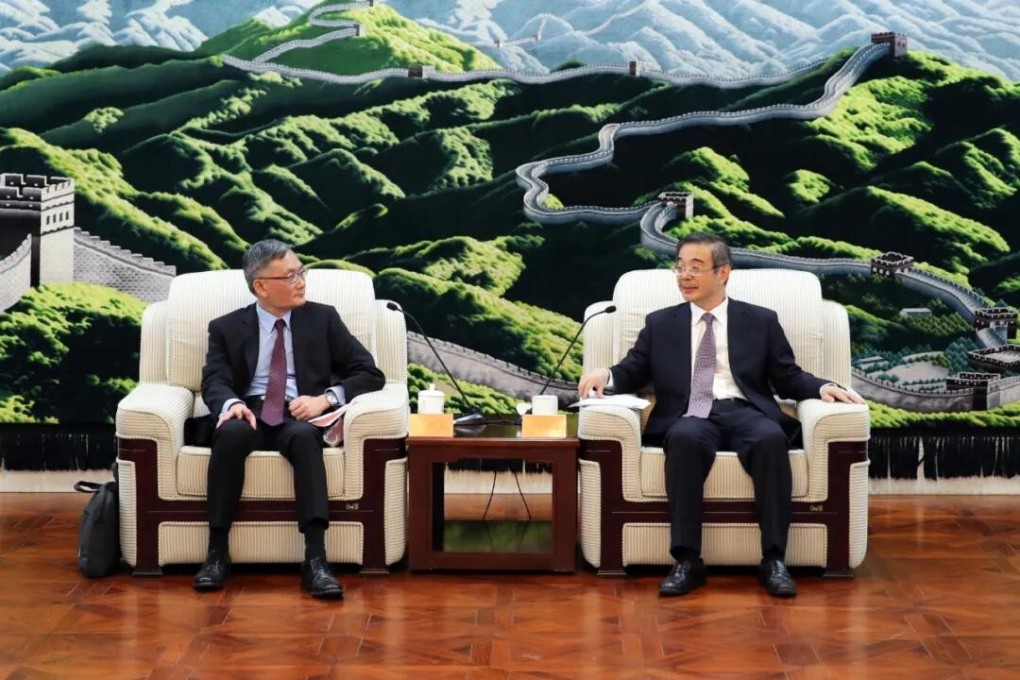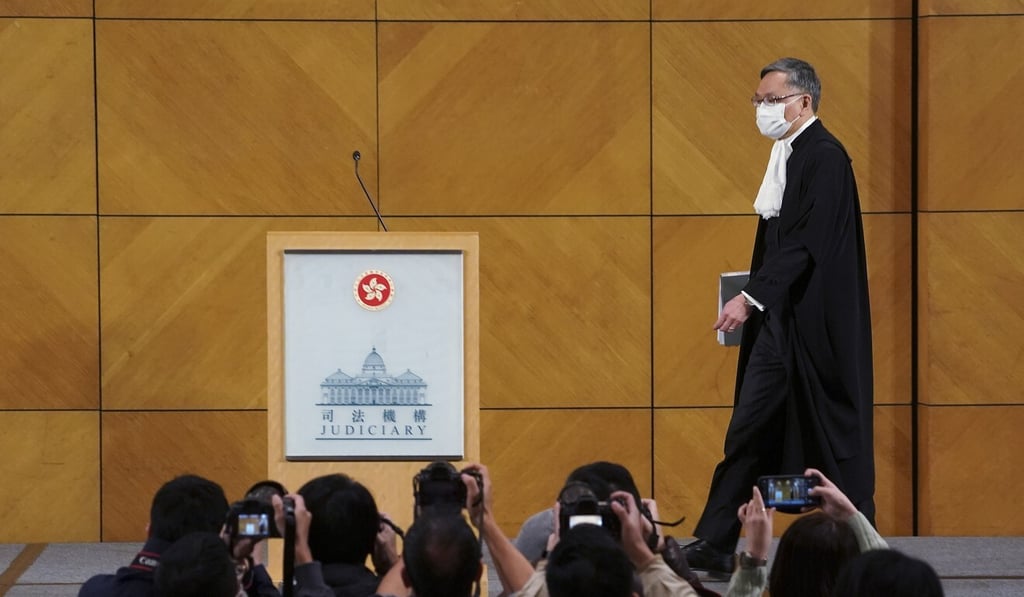Hong Kong chief justice urged to implement national security law, ensure ‘patriots’ govern city in first Beijing meeting with China’s top judge
- Meeting marks first time Zhou Qiang, president of the Supreme People’s Court of China, has referenced the ‘patriots governing Hong Kong’ principle
- Andrew Cheung, the city’s top judge, was delivered the message on the first of a four-day visit to the capital by a judicial delegation

Zhou Qiang, president of the Supreme People’s Court of China, delivered the message to Chief Justice Andrew Cheung Kui-nung on Tuesday during the latter’s first capital visit since assuming his new role, the top court’s website and social media account said.
“[We] hope Cheung Kui-nung is able to lead the judiciary, to be responsible and dutiful, with a spirit of high accountability to the country and Hong Kong, and to fully implement the law, the Basic Law, the national security law and the principle of patriots governing Hong Kong,” Zhou said.
“Do not fail the trust and heavy responsibility granted by the central authorities, and exercise [the court’s] function to uphold national sovereignty, security and … the long-term prosperity of Hong Kong.”

He also urged the judiciary to deepen exchanges with its mainland counterparts to “strengthen judicial officers’ consciousness for the country and concepts of the nation”.